“To be able to see a virtual image over the real world - that augmented reality is - is a mind blowing, very different experience.”
In this Let’s Talk Risk! conversation, Phil Deming shares some of the unique human factors engineering challenges for an augmented reality (AR) technology for 3D visualization of human anatomy in real time during a medical procedure.
Phil advises manufacturers to stay current with rapidly evolving new technologies, and talk to users in their intended environment to figure out how best to deploy a system so it does not interfere with their standard work flow. This is the essences of human factors engineering, which involves developing a solid understanding of how users interact with a system and minimizing risks at the user interface.
He also shares some of the differences between usability engineering according to IEC 62366 and FDA guidance for human factors engineering.
Listen to this Let’s Talk Risk! conversation with Phil Deming, which also includes an open discussion with a live audience. Jump to a section of interest using these timestamps.
00:01:40 Introduction
00:02:30 Human factors engineering in medical industry vs. consumer electronics
00:05:15 Introducing AR technology to visualize human anatomy in 3D space
00:07:15 Human factors considerations for AR technology
00:08:42 Considering use-related risks associated with AR technology
00:10:05 Tackling new challenges in human factors emerging with technology
00:11:35 Audience Q&A and general discussion
00:30:52 Closing comments and key takeaways
If you enjoyed this podcast, consider subscribing to the Let’s Talk Risk! newsletter.
Suggested links:
Understanding risk-based thinking
MediView XR: OmnifyXR holographic display with real-time imaging and 3D anatomy visualization.
FDA Guidance: Applying Human Factors and Usability Engineering to Medical Devices, issued February 2016.
IEC 62366-1:2015: Application of usability engineering to medical devices, issued 2015.
LTR podcast: Treat human factors as a driver of customer satisfaction, not a check-the-box activity, August 2024.
About Phil Deming
Phil Deming III is a human factors engineer at MediView XR, Inc., a digital health company that leverages augmented reality, remote connectivity and spatial computing data to create revolutionary surgical navigation and tele-procedure platforms. He has over 20 years of usability and human factors, first in the consumer electronics, later transitioning into medical devices. He holds a Bachelors degree in Business Management, Marketing and related support services, and a certification in Automotive Engineering Technology.
Let’s Talk Risk! with Dr. Naveen Agarwal is a weekly live audio event on LinkedIn, where we talk about risk management related topics in a casual, informal way. Join us at 11:00 am EST every Friday on LinkedIn.
Disclaimer
Information and insights presented in this podcast are for educational purposes only. Views expressed by all speakers are their own and do not reflect those of their respective organizations.


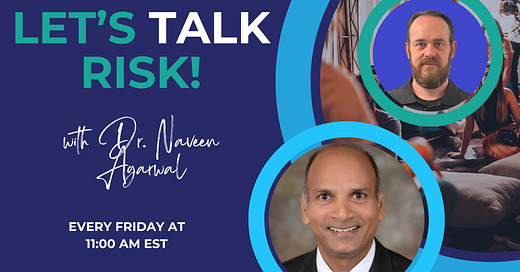
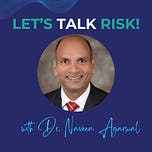
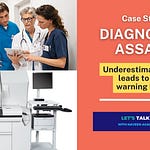
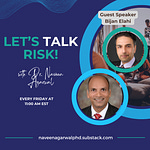
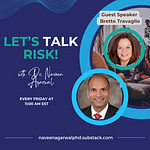





Share this post